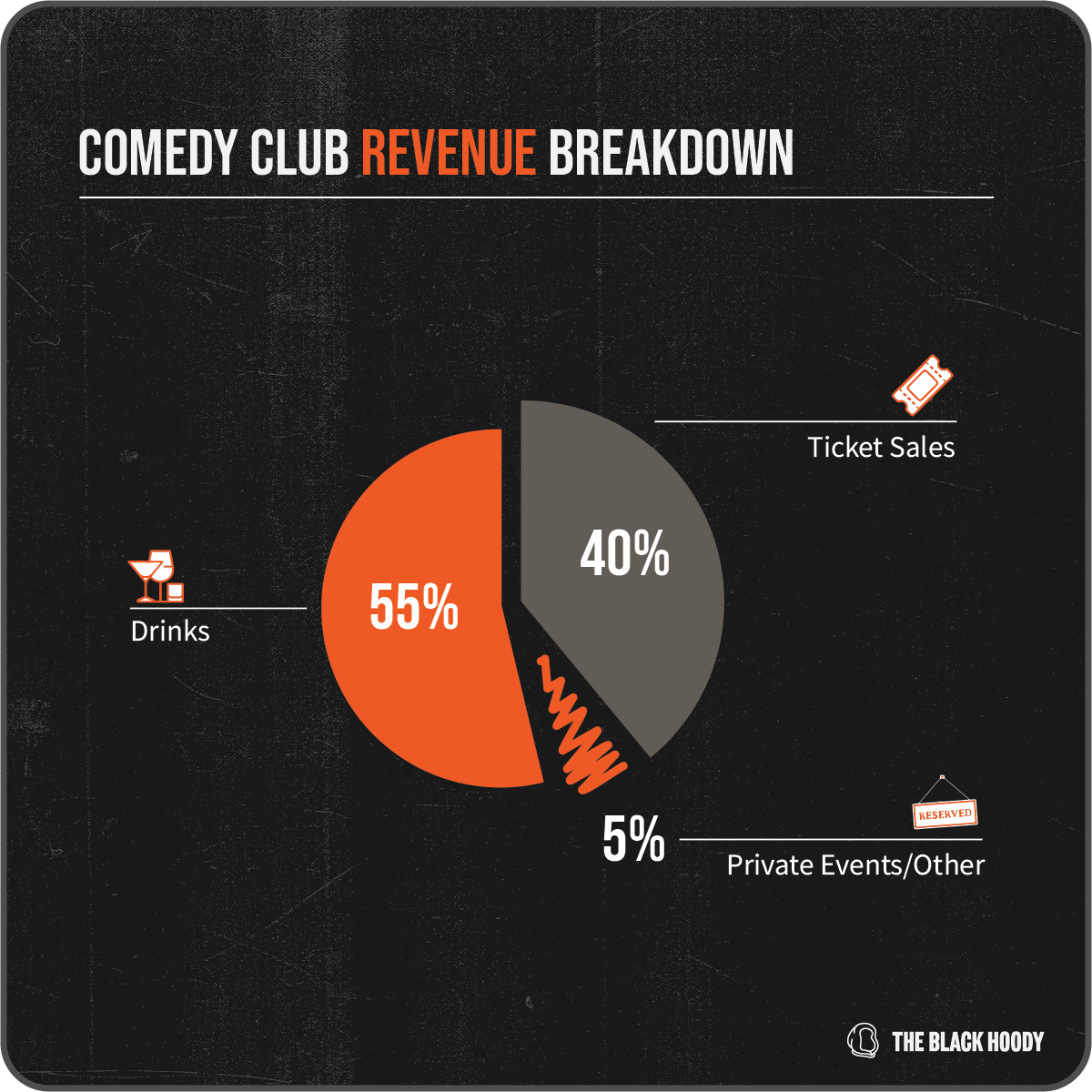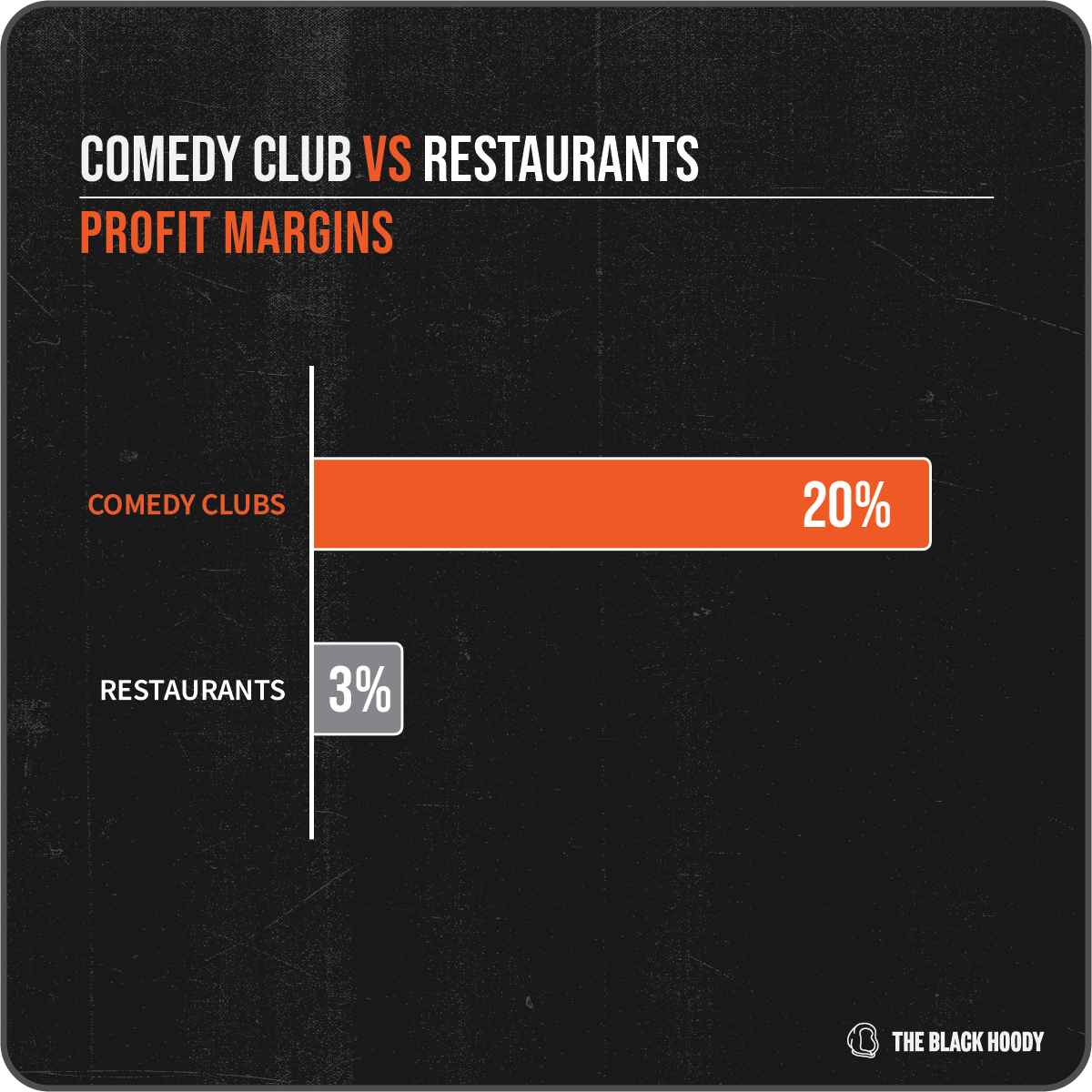The most successful people I know have one thing in common: they can handle rejection better than almost anyone, and what better way to learn how to handle rejection? A sales job.
Enter Emilio Savone, who spent twelve years on Manhattan streets selling comedy tickets before building a vertically integrated comedy empire. He owns 5 comedy clubs, a record company, a ticket platform and a management firm.
This is the first episode of The Black Hoody Podcast, I hope you learn as much from Emilio as I did.
The Black Hoody Podcast will be interviewing entertainment executives, agents, artists and managers who are doing unique things in their creative businesses. If you any suggestions for guests please email me; contact@theblackhoody.com
Here are my from episode with Emilio;
The Economics of Comedy Clubs
When Emilio finally bought his first club in 2014, he had to learn unit economics fast. Here's what he revealed about running a successful comedy club:
Comedy Club Revenue breakdown:
Ticket sales: 40%
Drinks: 55%
Private events/other: 5%
The most surprising thing? Successful comedy clubs typically operate at a 20% margin, significantly higher than restaurants who have 3-5% margins.
"The two-drink minimum is crucial," Emilio emphasised. "Death, taxes, and drink minimums. In New York City, the rent's insanely high, staff isn't cheap, and you've got to pay for talent."
The Vertical Integration Strategy
What makes Emilio's business fascinating is how he's vertically integrated multiple revenue streams:
The Ticketing Platform: Custom-built for comedy clubs, it keeps customers on the venue's website rather than redirecting to third-party platforms like Eventbrite. "When we switched to our ticketing platform, our ticket sales jumped 3,000%," he said. The platform now serves over 100 clubs nationwide.
The Record Label: Every show is recorded, and comedians get clips the next day. Popular sets get submitted to SiriusXM, where "normal everyday comics can make $2,000 to $3,000 a month just by putting stuff out."
Management Company: Using data from their ticketing platform, they know exactly where each comedian's audience comes from, making touring decisions more strategic.
The Relationship Game
Unlike other industries, comedy clubs have two customer bases: ticket buyers and comedians. Emilio's success comes from understanding this dynamic.
"We have two customers. We have the people that come in and buy tickets, and we have the comics," he explained. "I want to treat them like they are our customer."
This philosophy extends to practical decisions like allowing comedians to watch shows from the room (most clubs don't allow this because it takes seats from paying customers) and investing $60,000 in camera systems so every comedian gets professional clips.
The payoff? When established comedians like Bill Burr or Andrew Schultz want to work out new material, they choose Emilio's clubs.
Common Mistakes (And How to Avoid Them)
For Club Owners:
Cutting corners on staff and management
Not spending enough on marketing ($10,000 per week per club on Google Ads)
Not listening to comedians' feedback
Trying to copy other clubs instead of finding your own lane
Getting too complicated with food offerings
For Comedians:
Not performing enough (Emilio wants to see 20-30 sets per week minimum)
Being arrogant about getting "passed" at other clubs
Staying too comfortable at one venue
Cancelling last-minute for "better" opportunities
The Bigger Picture
The comedy industry faces the same disruption as music, with traditional gatekeepers losing power to creators who can build direct relationships with audiences. Emilio's model, providing multiple revenue streams, data insights, and genuine career development represents what the new intermediaries need to offer to stay relevant.
"We're not just running a comedy club," he said. "We're selling tickets, and I want to sell tickets for the sake of the comic too."
In an industry built on relationships and reputation, Emilio has created a sustainable competitive advantage by genuinely caring about his comedians' success. The financial returns have followed naturally.
His advice for anyone building in the entertainment space? "You gotta eat what you kill," but make sure everyone at the table gets fed.








